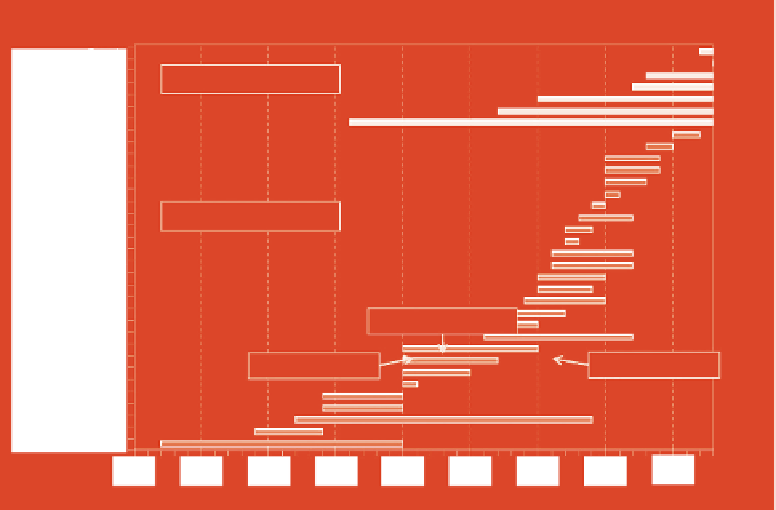Environmental Engineering Reference
In-Depth Information
Non-OPEC countries in decline or plateau
Russia
Sudan
Turkmenistan
China
India
Malaysia
Brunei
Equaorial Guinea
Chad
Mexico
Denmark
Yemen
Australia
Colombia
Congo
Argentina
New Zealand
Oman
Norway
Uzbekistan
Gabon
UK
Syria
Papua New Guinea
Pakistan
Egypt
Other Europe
Cameroon
Dem Rep Congo
Peru
Tunisia
Indonesia
Romania
US
1965
Countries in plateau
Countries in decline
Duration of plateau
Onset of plateau Onset of decline
1970
1975
1980
1985
1990
1995
2005
2000
Source: PFC Energy,
Global Liquids Supply Forecast
The bars show the onset and duration of documented production peaks or
plateaus - tracking country life cycle shows an acceleration of the number of
countries passing from peak to decline.
for oil in transport, which is over ninety percent oil-derived. Oil is the
only fuel to so dominate any sector: elsewhere energy sources or fuels are
largely interchangeable via the medium of electricity. But the only major,
large-scale transport application of electricity so far has been to trains.
Just as everyone is affected by the oil price, the oil price can be affected
by oil-supply (and demand) changes anywhere on the globe. Oil is the
only unified global energy market. (In the case of energy sources, such as
gas, there could be a supply shortage or excess in one region with hardly
any impact on other regions.)
Finally, not only does the oil price
absorb
oil supply/demand shocks
around the world - it also
sends out
shocks of its own. For instance, conti-
nental Europeans link their gas prices to the oil price: oil is thus the prime
mover for European energy prices. The level of the oil price is a powerful
determinant of world economic activity: the state of the global economy
and the price of oil tend to move up and down together.

































































